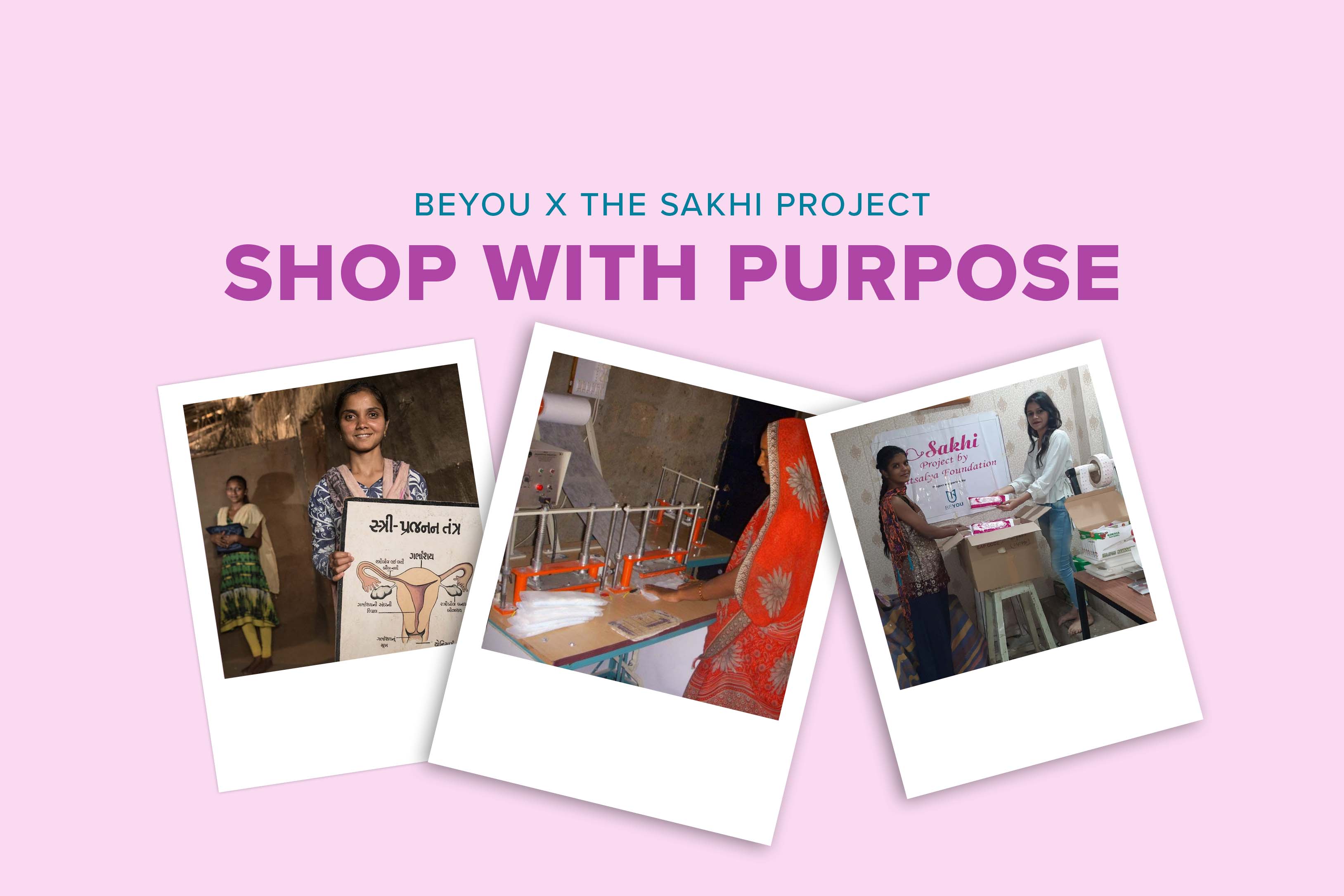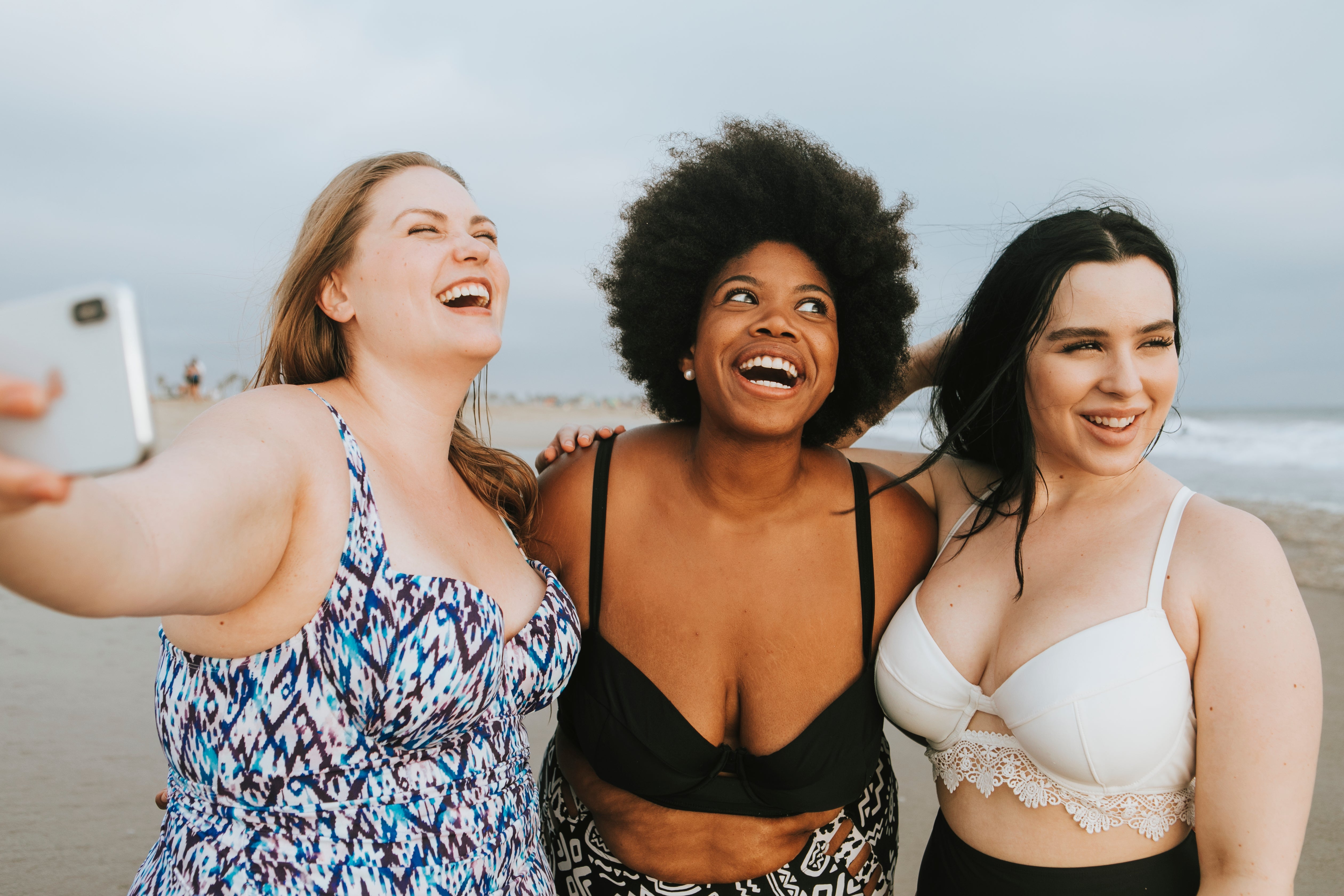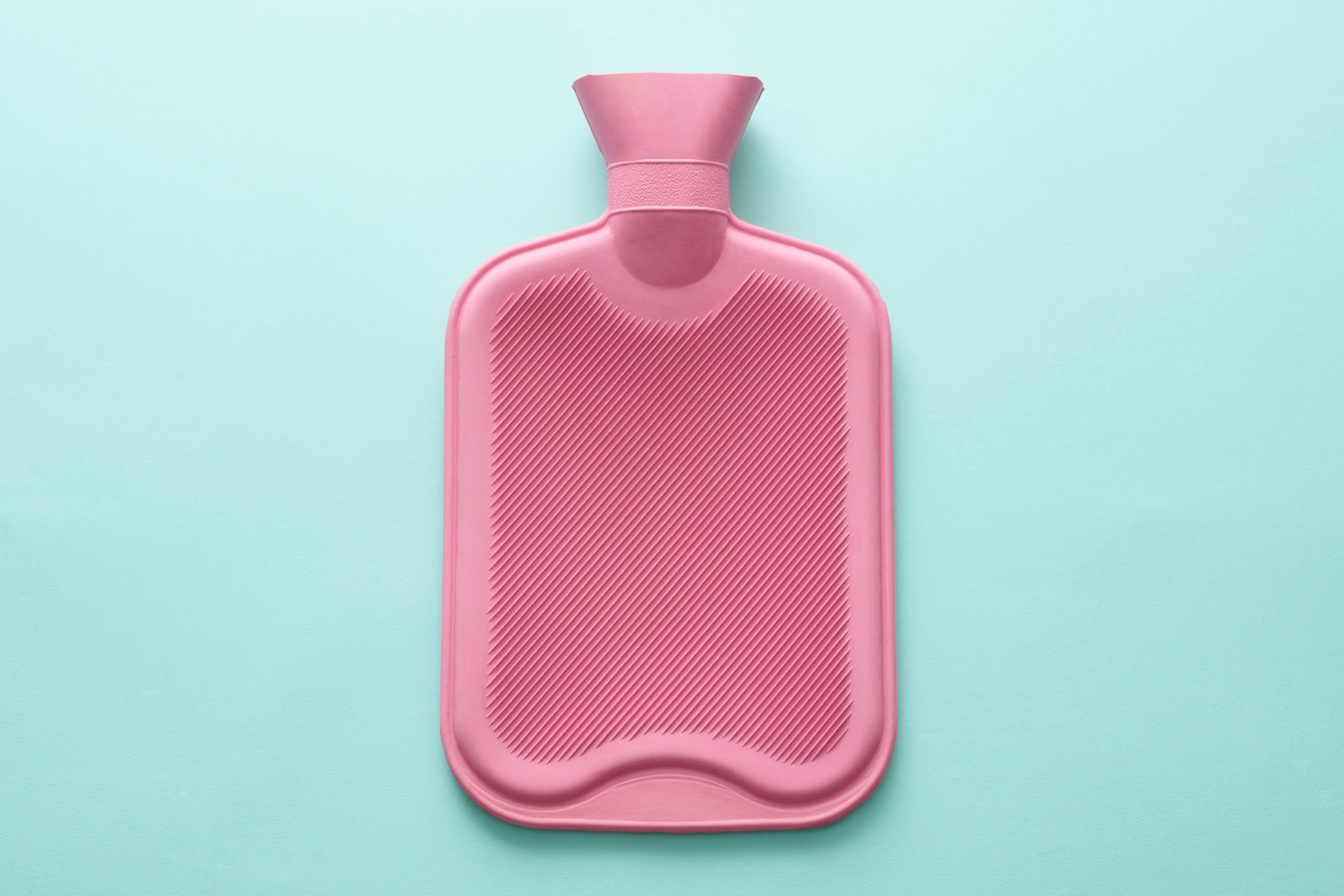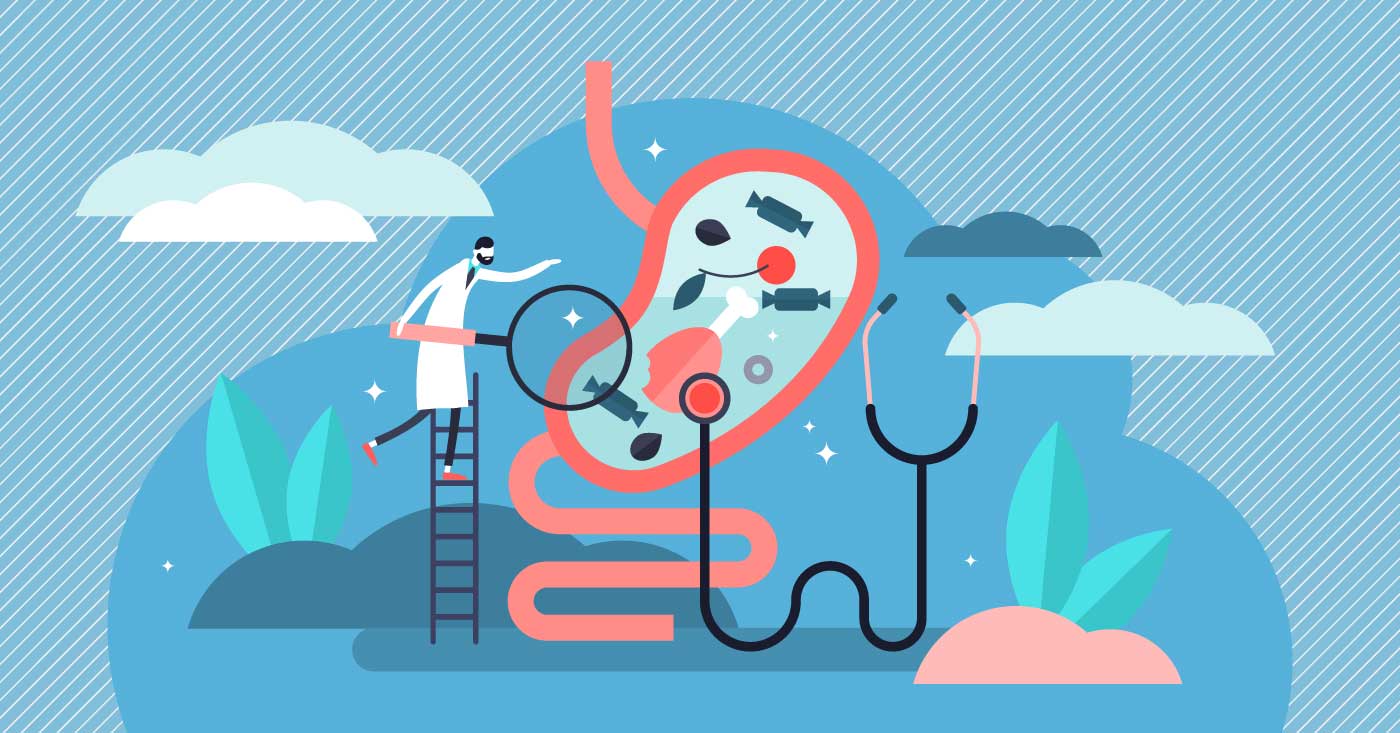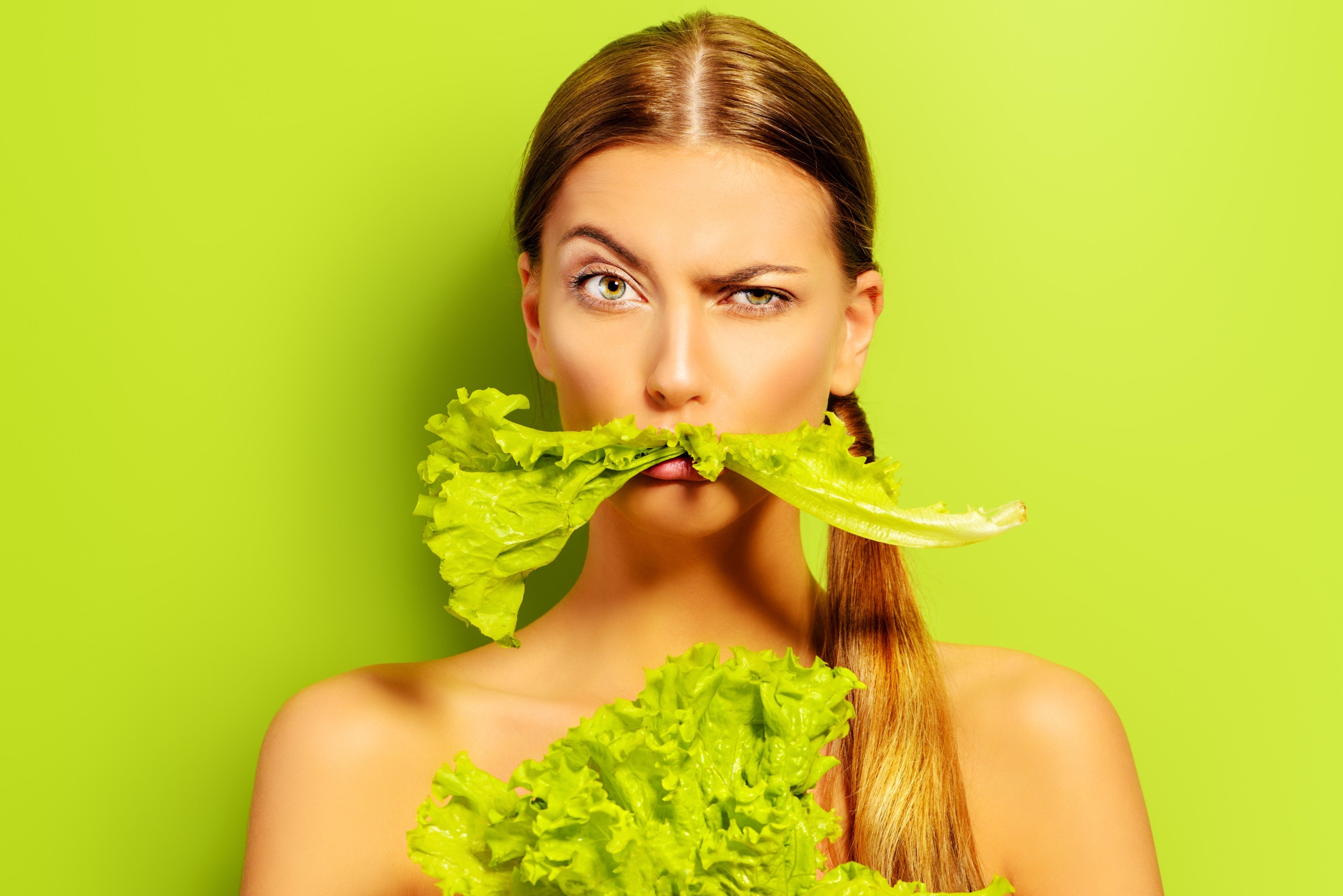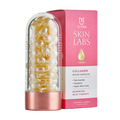Podcast Diaries: The Flow Down Episode 2
Apr. 01, 2020 By BeYou
Why we love this episode:
We like to be a little nostalgic at BeYou HQ. We often talk about how weird and awkward it was when we got our first periods and how funny it is now to think about it! This episode of The Flow Down is all about just that. Jess and Stephanie talk frankly about what it was like to get their first period and how it was kind of different to how they thought it would be. They talk about all things to do with menstrual education, period stereotypes and those around them who influenced what they thought about periods.
We're sure you'll love this episode just as much as we do so make sure to give it a lesson below and subscribe to The Flow Down on your favourite podcast app.
Listen & Learn:
The Transcript:
Today on episode two of The Flow Down. Oh my God. Something big has happened here.
I panicked.
It didn't look like what I thought it was going to look like.
Ah, I am normal.
Hi, I'm Stephanie.
And I'm Jess. And this is a podcast all about periods.
Today we take a little trip down memory lane back to the days of our first periods.
The shame, the fear, the excitement. Stick around.
Those awkward years. I'm getting this vision of myself sitting in my room about to turn 12. I've got this mask on my face. Boyz II Men is playing in the background and I'm pretending to talk on my bright pink phone to my crush.
Oh, stop. It sounds like you were incredibly adorable.
Aww. I was definitely a shy, sensitive, studious little girl who all of the sudden was starting to care about what I looked like and boys. Oh, Jess, I wish I knew you back then.
Oh, I would have loved to know you back then. I definitely hear you about the boys thing. I think my number one interest at the time was trying to fit in and be cool and popular, whatever that meant. I had also been this really bookish kid like you and I was into drama and acting and then suddenly came sixth grade, I was so concerned with my clothes and my friends and what group I was in and how I appeared to other people, even what backpack I had. And I remember I really wanted to develop too, like some of the other girls were, but I was kind of slow in that department and that was frustrating.
Oh yeah.
I remember when boys in my grade started doing this thing where they would go up behind girls and sort of just grab the clasp of their bra and give it like a little tug, like a little snap. And I think they saw it as something like flirty and playful, but it was really inappropriate. And I remember that once a boy did that to me and I didn't have a bra on because I didn't need one yet and I was so embarrassed.
Oh Jess.
What about when it came to periods, Steph? Did you have somebody who prepped you for that experience?
What sticks out in my mind is when our school nurse came in, I was in fifth grade and she pretty much just gave us some pamphlets which explained the ways girls' bodies and boys' bodies were going to change during puberty.
A pamphlet. Do you remember what was in it?
Yeah, there were a few visuals, but then it was mostly brief explanations, that girls were going to develop breasts and get periods and boys were going to get deeper voices and have erections and wet dreams, which I specifically remember thinking to myself, "I'm so glad I'm not a boy." Clearly I didn't have a good handle on what having a period really entailed back then. But yeah, we got that pamphlet. And I'll never forget when I got home from school that day, I literally locked myself in the bathroom and read that pamphlet over and over and over. I was so intrigued. I was dying to know more, but I was not brave enough. I did not have a person or a place that I felt particularly comfortable asking.
I don't have any sisters, but I did have one friend who had a sister who was two years older, which was perfect. And one night a group of us slept over and snuck into her sister's room after she had gone to sleep and beamed this flashlight in her face and were like, "Tell us everything you know," which, of course coming from someone who was like in seventh grade at the time wasn't enough, but thank goodness for her.
Yeah, no sisters on my end either, so I definitely know what you mean about relying on older girls around for cues.
Totally.
So how did you feel about it all? Were you excited for your period?
I was excited for sure. Part of that was just a plain fascination with body stuff. So I was really into the body and science since a young age and I was excited to see how this whole getting a period thing worked. And then the other part of it was that getting a period meant I was getting older, and being much younger than my brothers and always feeling left out about that, I really wanted to get older.
Aww, Steph. I know I did too, for sure.
Yeah, that's enough about me. What were you told about your period before you got it, Jess? Did you have someone to turn to?
I'm pretty sure my mom said something and told me that there were supplies in the closet for whenever I was going to need them. But I don't really have a clear memory of having a conversation with her, and I'm sure that's because I was just completely mortified.
Oh my gosh, I remember feeling that way too when my mom tried to talk to me. What else do you remember?
I guess I kind of remember sex ed, but not really anything that we learned in it. It was in sixth grade and I remember the classroom was dark and sort of in the basement area of our school next to the ceramics room, and that our classes were just us watching old outdated videos or staring at the projector, and everyone just being distracted and feeling awkward. Honestly, I think the most useful thing to me around that time was the Judy Blume book Are You There God? It's Me, Margaret Murphy.
Perfect.
So I was a pretty big reader and I think my mom took me to Borders in fourth or fifth grade and bought me that book and I just devoured it. So for anyone who doesn't know this is a coming of age, YA novel by Judy Bloom. It's all about Margaret, who's a sixth-grader who just moved from New York City to New Jersey, who's trying to fit in a new school and make new friends. And that's a pretty confusing time of life when you're developing and your body's changing and you have hormones and puberty. So she and three other girls form a secret club to talk about things like boys and bras and getting their first periods. And they seem to really want to get their period.
Wow.
Like it's a cool thing to have to happen. And I remember that Margaret and her friends, they even had like little exercises that they did that they thought increased their bra size. I must, I must, I must increase my bust.
That is amazing.
So anyways, the book really contextualised periods and developing as a kind of cool thing. And I do believe it really did help prepare me for the emotions that come with getting a period, the shame and fear, but also the excitement.
So you mentioned that Margaret had this circle of friends and they were all talking about periods. Do you feel like that is a real depiction of what was going on in your circle of friends at the time? Or was the book more of your personal escape into that world?
Yeah, no, I do not remember sitting around with girlfriends and talking about our periods. I think it was pretty personal for me. And that very well may have been because I did get my period later than other girls like I mentioned. So I think it was something that I kept pretty quiet. I knew which of my friends had gotten their periods and which hadn't, but we didn't really talk about it. And I think that that's why the book was so great because I could enter this other world and the conversations those girls were having, but I didn't actually have to have those tough conversations myself.
Yeah. Wow. Well, I can't imagine what it would have been like if you hadn't had that book.
I know. Now looking back on that time, it is really unique what that book represented and the stigma that it broke. Judy Blume was super innovative in that realm.
There's really no other book out there like it, right?
Nope. Periods don't show up in young adult fiction really at all. So I feel a sense of gratitude that she decided to go there, where other authors weren't.
Go Judy.
Uh huh (affirmative). And the crazy thing is, Steph, I recently learned that there have been all of these efforts to take that book off the shelves.
What?
Yep. I actually didn't know this until recently, but starting in the '80s with a wave of conservatism in the country, the book was a frequent target of challenges due to its discussions of sex or what was perceived as anti-Christian material because Margaret questioned if there was a God and she questioned her relationship to God. So it has shown up on the American Library Association's list of the a hundred most frequently challenged books, even into the 2000s.
That is devastating.
It is. It's really sad that we would take that away from the young girls, especially because they really often don't have anywhere else to learn about all of these feelings and changes that are going on.
And now, Jess, you wrote to me recently really excited because you had read that. Are You There God? It's Me, Margaret is going to become a movie.
Yes.
I love that. I love that girls are also going to be exposed to these lessons in a movie.
Yeah. This is really such exciting news. Judy Bloom was hesitant for decades to let her books be turned into movies, but she finally announced on Twitter in August that she was open to it and it did not take long to sell the rights. This'll be a game changer for adolescent girls for sure. Steph, we grew up in the '80s and '90s and we never saw references to periods on TV or in the movies. The only time I really remember it was a short scene in the movie My Girl, which came out in 1991, when little Vada gets her period and runs into her dad's friend, Shelly, who's played by Jamie Lee Curtis.
That's right.
Ah! Where's daddy?
Well, he just left. What's wrong?
I'm hemorrhaging.
What do you mean you're hemorrhaging?
I don't want and I don't need help.
Did this happen in the bathroom? How old are you?
11 and a half.
It's okay. Come on upstairs, we have to have a little talk.
So sweet. So she explained to Vada what was going on, but that was pretty radical and it was just a scene. The adolescent and young female characters on TV that we related to, they didn't really share that experience with us at all.
Oh, they did not. My mom and I used to sit on the couch together on Fridays and watch TGIF, which stood for Thank Goodness It's Friday. It was basically a lineup of family-oriented shows from 8:00 to 10:00 PM on ABC. And they were funny, but they also had some life lessons interspersed in them as well. And I can't help but think how cool it would have been if DJ on Full House or Laura on Family Matters got her period on one of the episodes.
Yeah.
Not that they had to celebrate it or anything, though that would have been amazing, but even if they just mentioned it, I feel like it could have broken the ice a bit and maybe even sparked a conversation at home about periods. And if nothing else, I know I personally looked up to DJ and Laura. They were a little bit older than me and they happened to be the main characters on the shows I liked and that were on air at the time. But it might've made the idea of getting a period feel a little more normal.
Yeah, it totally does seem like it would have fit. DJ was always having deep talks with Danny Tanner about life lessons. It definitely would've been eye-opening for young girls.
So Jess, to bring it back to our adolescent days, I really want to hear what it was like when you finally got your period?
Oh gosh. Yeah, I remember that evening really well. I was 13 in seventh grade and it was a school night. I was babysitting in my neighbourhood. I was babysitting these two twin girls, the Walker girls, and I had put them to bed and was just sort of sitting on the couch reading a book and I felt like I had to go to the bathroom.
So I went to the bathroom and realised I've gotten my period. Now, it didn't look exactly like what I had been expecting, but I still knew this was it. So I exited the bathroom and called my mom on the landline. She actually later told me that I sounded pretty scared. So I told her I'd gotten my period and she rushed right over. She brought me a little baggy with a few pads in it and she left me the pads. I think that I didn't really want to talk about it that much. I was probably pretty embarrassed and I just wanted it to be like a quick handover.
So she left me with the pads and I put one on and I remember went back to babysitting as if nothing had happened. But something had happened. It was a big moment. And I do remember feeling proud. Finally, I had gotten this thing that I've been waiting for and now I'd be able to relate to my friends and share in that experience with them. I definitely feel like it was something important to me and that I felt excited and proud.
Yeah, you were part of the club.
Oh, I so was. So what about you, Steph? I'm dying to hear.
I got my first period exactly a week after I turned 12. It was a school morning and I woke up and I was changing and I noticed that I had blood on my underwear. So I ran downstairs excited and I told my mom and she was like, "Oh, you got your period." And she grabbed me a pad and we put it on together and I went off to school. And I remember feeling really excited all day. All day I was really excited. I was dying to tell the world, but at the same time I was scared to tell anybody else.
I think part of me felt like it was really sweet that my mom and I got to share this little secret just between us, but I also know the embarrassment factor had a lot to do with it. If I tell one friend, everyone's going to find out and I'll be mortified, and that had totally happened to the first girl in my class who got her period and I was the second, so if history repeats itself.
But yeah, looking back on that day, I was so excited to get my period, but again just way too embarrassed and shy to talk much about it. And at the end of the day I remember feeling kind of let down.
Aww.
This is a big deal, but it just wasn't. It wasn't for me and it wasn't for anyone that I knew when they got their periods
And Steph, I know I've heard you say before that the way we experience our first periods can set the stage for later experiences in our lives. So how do you connect the dots in that way for yourself?
Fast forward 10 years, as I mentioned in our first episode, I stopped getting my period altogether and for months I totally turned a blind eye to it, which as someone who now knows the importance of having a period, that's actually really hard for me to admit. The more I've been able to put that aside, the more I've been able to see another side of it, the lack of conversation around getting our periods, the way we're taught to throw on a pad or tampon and get on with life as if our periods weren't happening conveys this message that our periods aren't important. So connecting the dots in that way, it makes total sense to me that I didn't think much of the fact that I wasn't getting my period every month.
Wow. Well, it's fascinating to think about these experiences in our lives and the messages that we receive, how they link up. So we're going to take a short break and when we come back, we're going to talk about the power of sharing these first period stories now as adults and reclaiming some of those early experiences. We'll be back.
So these days it seems like there's this whole new movement out there to share first period stories. Just go to YouTube and type in first period stories and you'll find women and girls sharing their stories. I even found them in the Washington Post in their women's section, the Lily.
Steph, in your work, you also encourage women to share their first period stories. Actually, the first time I ever shared mine was in your Know Your Cycle challenge in a Facebook group with a bunch of other women, many of which I did not know, but all of us were sharing our first period stories with each other. It was such a moving and interesting experience, both to share my story and to hear theirs. And many of their stories were so different from the way that I had experienced my first period. So Steph, what do you make of this? Tell us, why do you think so many women are exploring their first periods now as adults?
It has felt really special to see women share their stories in that space. So just talking from my own perspective and why, as a women's health coach, I find it's a powerful practice. First, because it gives you clarity. Taking that trip back in time to your very first experience with your period, getting in touch with what you were feeling, considering what you were told at a time in your life when you were so impressionable about being a woman, about getting a period shines a light on what your beliefs towards menstruation are and helps make sense of your relationship with your period.
And at that point, I always like to ask, "Is having those beliefs around your period working for you? Are you satisfied with your relationship with your period?" And then I find it helpful to add in a bit of compassion there. "Okay, that was my experience. This is what I've felt like towards my period. I forgive that person for saying, 'Ew," when I got my period," whatever. But what all of that really does is sets us up to be able to say, "Okay, that's what I was taught to believe about my period, but this is what I choose to believe going forward." And that's so powerful. So sharing our first period stories can serve as inspiration for ourselves, for others and pave the way for you to choose to do something different, to create a relationship with your period that's on your terms that you feel aligned with.
And then I also think there is enormous power in literally telling the story in speaking the words or coming out about something we feel like we've had to hide. I remember one of the women in the Know Your Cycle group saying, "I feel like we have our own little me too movement with periods happening right now." So by sharing your story, you're reclaiming the power that was taken away from you as an 11, 12, 13 year old girl, or whichever age you got your period.
And then lastly, I think, too, that first periods are in most cases the easiest, most comfortable way to break the ice. And I think that might be the reason we're seeing the call to share first period stories online and in social media because it's easy. It's something we can all relate to no matter what your experience of your period is like now, we've all had a first period and it brings us together and I love that. So there's a lot of power in this.
Steph, thank you so much for sharing those insights with us.
You're so welcome. Now it's your turn.
Yes, listeners, we hope we've left you super excited to share your own story. Maybe you just want to write it down in a journal or maybe you want to tell it to somebody, like a friend or a family member. Maybe they'll even share theirs with you too.
And if you don't have someone you feel to call to share your story with, share it with us. You can leave us a voicemail with your story at 929-456-FLOW, or email us your story at hello@flowdownpod.com.
Thanks for tuning in to episode two of The Flow Down podcast. If you enjoyed this episode, please subscribe rate and leave us a review on iTunes.
Our theme song is Crimson Wave performed by Taco Cat courtesy of Hardly Art Records.
On our next episode, tune in as we speak to drummer and period activist Madame Gandhi.
Talk about taking a bold stand against covering up your period.
Seriously, you won't want to miss this one. See ya.
Bye.
Shownotes:
We re-live our awkward pre-teen days and talk about the things that saved us during such an exciting, nerve-wracking time in our lives. Then we share the stories of our first periods. Plus, why you may want to consider thinking back to your own first period experience.
Resources + Links
100 Most Frequently Challenged Books 1990-2000 - American Library Association
Judy Blume Grants ‘Are You There God? It’s Me, Margaret’ Screen Rights To James L. Brooks & Kelly Fremon Craig - DEADLINE
What was your first period like? Readers tell their stories - The Lily
One in Four American Women Were Unprepared for their First Period, Survey Finds
The Know Your Cycle Masterclass with Stefanie Kleinburd
